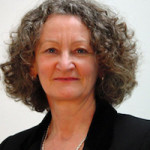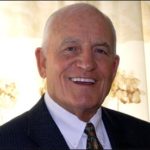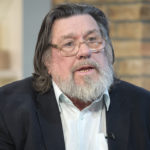Core Participant? Your Name’s Not Down, You’re Not Coming In
 In the early 1990s it seemed like every dance track needed to have a sample. The Prodigy – the now stadium band famous for ‘Firestarter’ and ‘Invaders Must Die’ – started out with a track that sampled Charlie the Cat from a government safety information advert.
In the early 1990s it seemed like every dance track needed to have a sample. The Prodigy – the now stadium band famous for ‘Firestarter’ and ‘Invaders Must Die’ – started out with a track that sampled Charlie the Cat from a government safety information advert.
It was probably this track that launched a thousand copies of that sampling template. Another ‘memorable’ track was one called The Bouncer. This again had a typical dance backing track of the 1990s era – and it sampled a bouncer saying ‘your name’s not down you’re not coming in’. Hard to believe this was a big hit.
The reason why this is mentioned is that recently COPS held its monthly meeting and discussion. Our concern is based on recent decisions being pumped out from the Inquiry particularly regarding those who have applied for Core Participant (CP) status and the fact that despite a supposed ‘open door’ policy, the Inquiry is increasingly turning applications away. Not just any applications – but extremely compelling applications. We are worried.
Let us remember that the Special Demonstration Squad (SDS) and its later manifestations have been involved in undercover policing of political activists since 1968. The Met themselves admit the SDS spied on over 460 groups at one time or another. The Inquiry’s Terms of Reference refers to undercover policing and does not restrict itself to the SDS. It therefore should, we believe, have a remit to look at how police forces have used undercover policing in the classic sense – that is, the way in which Mark Kennedy, Peter Francis and Marco Jacobs operated – with a new identity and ‘deep swimming.’ Yet it is not just that.
Terms of reference and an open approach?
The Terms of Reference prefers a broad definition of undercover policing. This would, it seems, include undercover policing carried out by non-SDS Special Branch and also regional police authorities. It should and could even refer to that type of state policing by MI5
A core participant broadly speaking is an individual or an institution that played, or may have played, a direct or significant role in relation to the matters to which the Inquiry relates; has a significant interest in an important matter to which the Inquiry relates; or may be subject to explicit or significant criticism during the Inquiry proceedings or in a report prepared by the Inquiry.
When the Inquiry was established there were over 200 applications for CP status. Most were accepted. A judgement made in October 2015 illustrates the open character of the Inquiry.
Based on this initial ruling we felt that the Inquiry was going to do two things, listen to those of us who were spied upon and investigate undercover policing of political groups who were engaging in their right to protest.
It was also said that there would continue to be an open door for those who wish to seek Core Participant status. We now question that initial promise, as recent refusals have thrown it into doubt.
High profile cases rejected
In the last few months a number of high profile, and not so high profile applications have been made. Many have been rejected, or should we say in legal speak they are not rejected but ‘being kept under review’.

Jenny Jones
Jenny Jones is a high profile Green Party figure. She has run for London mayor, was a Greater London Assembly member for 16 years and now sits in the House of Lords.
She was spied upon for many years and has been told by a whistleblower that some of her ‘domestic extremist’ files were shredded by the Metropolitan Police.
Apparently this was not good enough to secure Core Participant status.

Tony Mulhearn
Tony Mulhearn is a high profile member of the Socialist Party (formerly Militant) in Merseyside. Previously he was a Labour councillor and one of the leaders of the Liverpool Labour council that battled the Thatcher government in the 1980s.
In the True Spies documentary undercover officers explain that they spied on Militant. Stella Rimington and David Shayler have also advised that MI5 spied on Militant’s leading figures in Liverpool.
Again, this application for CP status was rejected.

Peter Tatchell
Peter Tatchell is a lifelong campaigner for LGBT equality, starting with the Gay Liberation Front and helping to organise London’s first Pride march in the early 1970s.
The gay rights movement was a new political force, challenging the status quo and with the potential to hugely embarrass establishment figures who were in the closet.
He renewed his commitment to LBGT direct action in the 1990s with FROCS (Faggots Rooting Out Closeted Sexuality) who exposed public figures who made homophobic pronouncements whilst having a secret gay life. He also famously attempted a citizen’s arrest of Zimbabwean president Robert Mugabe in London.

Ricky Tomlinson
Ricky Tomlinson was imprisoned because of his trade union activities. He is one of the Shrewsbury 24, and along with Des Warren was sentenced to 3 years in prison. The first episode of True Spies – ‘Subversive – My Arse’ opens the trilogy about him. A police officer accepts there is a file on Ricky Tomlinson.
He also had a file with illegal blacklisters Economic League file, and it is well established that the Metropolitan Police had close links with them and shared information.
Despite the evidence provided to the Inquiry, these four high profile cases have all had their applications for Core Participant status refused. An impartial observer would probably be surprised at this. (Core participant rulings can be found here).
Spied on – balance of probabilities? Or beyond doubt?
In the initial period of consideration Core Participants were not only encouraged, but assessed on what can be best described as a balance of probabilities. That is to say, whilst many were able to point to an actual officer who spied on them, some CPs were unable to do so but had sufficient evidence to show that in all likelihood, given membership of a particular campaign, they would have been spied on. The Inquiry appeared to accept it had an inquisitorial function.
Since allowing 200+ people to be CPs, has there been a panic at Inquiry HQ? Recent applications have been given a much tougher time. It would appear that the assessment has gone from one of probabilities to certainty. Now it appears – particularly in the matter of the high profile cases listed above – the weight of evidence showing an overwhelming probability of being spied upon has been replaced by those applicants having to literally name the officer or officers who spied on them. For many targets of political policing, this is impossible.
The Inquiry seems to have moved the assessment goal posts without providing any announcement or guidance.
An Inquiry with an old style bouncer?
There appears to have been a change in emphasis. The Inquiry appears to have forgotten that it is inquisitorial. Its purpose is to uncover police wrongdoing, it should be assisting victims of the political secret police, rather than insisting they do their own detective work before being allowed to hear more.
This Inquiry is an extremely important. It is a once in a lifetime opportunity for the state to come clean, for the undercover officers of the SDS, National Public Order Intelligence Unit and Special Branch to come clean, and for the upper reaches of government responsible for these abuses to be held properly accountable.
For this to happen the Inquiry needs to be not only open and transparent but comprehensive too. Our fear is that, by insisting that new CP applications prove beyond doubt that they were spied upon rather than on the basis of a reasonable probability, this Inquiry – our Inquiry – is turning away from its true purpose and the demands of justice.
If these refusals continue for the flimsiest reasons it would appear that the Inquiry and the stewards of it are acting like the worst kind of bouncer –they may be registered and may have passed all the tests to become a ‘proper security’ guard but one that is still old school, still one that refuses entry on a whim – ‘you’re name’s not on the list, you’re not coming in!’.

I too have been in touch with Pitchford. August 2015. I make that a full year. I sent 2 lengthy emails. Fobbed on phone calls. Cover up? Oh yes. Why? Hillsborough